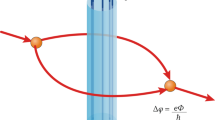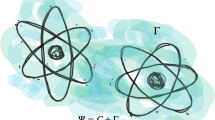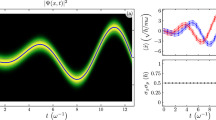Abstract
THREE great works laid the foundation of modern mechanics: Galilei's “Discourses on Two New Sciences”(1638), Huygens's “Horo–logium Oscillatorium”(1673), and Newton's “Philosophise Naturalis Principia Mathematica”(1687). Of these, the second is certainly the least well known, and least accessible to the English reader1. Yet it is more rigorous in the treatment of its subject–matter, more strictly mathematical in style than the others, and it certainly deserves more recognition than has ever been conceded to it. From Huygens's original intention to publish a work on the construction and scientific principles of his pendulum clock (employing a cycloidal pendulum), the work grew and grew over a period of about fifteen years, and finally issued forth in 1673 with much accumulated around its central theme. Unlike most of Huygens's other writings, the work is singularly free from all Cartesian influences. Huygens himself hoped that it would be in direct line with the great work of Galilei, and his hopes were not disappointed. Newton wrote to Oldenburg, the indefatigable secretary of the Royal Society, of his “great satisfaction” with the work, and said he found it “full of very subtile and usefull speculations very worthy of ye Author”. Newton especially admired Huygens's mathematical style, and considered him “the most elegant writer of modern times”.
This is a preview of subscription content, access via your institution
Access options
Subscribe to this journal
Receive 51 print issues and online access
$199.00 per year
only $3.90 per issue
Buy this article
- Purchase on Springer Link
- Instant access to full article PDF
Prices may be subject to local taxes which are calculated during checkout
Similar content being viewed by others
References
There is a German translation: "Ostwald's Klassiker der Exakten Wissenschaften", No. 192, and one in French: "Åuvres Complètes de Christiaan Huygens", 18, published by the Société Hollandaise des Sciences (1934).
"Åuvres Complètes", 18, 635.
"History of the Inductive Sciences", 2, 59 and Chap. v.
Author information
Authors and Affiliations
Rights and permissions
About this article
Cite this article
BELL, A. “THE HOROLOGIUM OSCILLATORIUM OF CHRISTIAN HUYGENS”. Nature 148, 245–248 (1941). https://doi.org/10.1038/148245a0
Issue Date:
DOI: https://doi.org/10.1038/148245a0
This article is cited by
-
Mental measurement and the introspective privilege
Phenomenology and the Cognitive Sciences (2023)
-
Enforcing synchronization in oscillators with Huygens’ coupling via feed-forward control
Nonlinear Dynamics (2019)
Comments
By submitting a comment you agree to abide by our Terms and Community Guidelines. If you find something abusive or that does not comply with our terms or guidelines please flag it as inappropriate.



